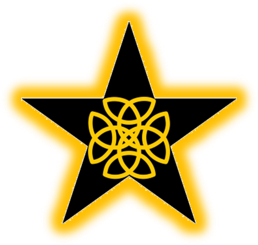The Association of American Railroads (AAR) says, “More than 99.99% of all hazmat moved by rail reaches its destination without a release caused by a train accident…” From a safety perspective, this makes rail transportation the most responsible means of moving hazmat over land.
Some of the positive industry and regulatory contributions to safety include:
- The USDOT’s enhanced tank car standards for crude oil and liquified natural gas;
- Distributed power and end-of-train devices to provide more consistent braking;
- Continual Federal Railroad Administration (FRA) inspections;
- The use of ultrasonic inspection with GPS technologies allowing for more frequent inspections of infrastructure to make timely repairs;
- The implementation of the Rail Corridor Risk Management System (RCRMS) to identify the safest hazmat routes;
- The “Hazardous Materials Grant Program” operated by the USDOT to fund training and planning grants for emergency responders;
- The “AskRail®” mobile app created by the rail industry in collaboration with the International Association of Fire Chiefs. (The app serves first responders in all 50 states and 8 Canadian provinces with access to accurate, timely data about what type of hazmat a rail car is carrying and how to safely respond to an incident); and
- A program that familiarizes local emergency responders with railroad equipment and hazmat product characteristics administered by the American Chemistry Council.
Safety protocols begin before hazmat even enters the cycle of transportation. The USDOT requires safety training for Hazmat Employees (i.e., anyone who directly affects the safe transport of hazardous materials).
According to the regulations, specifically 49 CFR 172.704(a)(3), Hazmat Employees must be trained in:
- The Emergency response information required by subpart G of part 172 including:
- Understanding the basic description and technical name of the hazardous material;
- The immediate hazards to health;
- The risks of fire or explosion for the materials being shipped, loaded, or unloaded;
- The immediate precautions to be taken in the event of an accident or incident;
- The immediate methods for handling fires;
- How to handle spills or leaks in the absence of fire; and
- What first aid measures should be instituted;
- What measures should be used to protect the employee from the hazards associated with hazardous materials to which they may be exposed in the workplace; and
- Methods and procedures for avoiding accidents.
In addition, the DOT mandates “function-specific” training to ensure that hazmat employees know how to perform their job duties. For rail transportation this includes (but is not limited to):
- Securing the rail car (braking, chocking, and signage);
- How to inspect each rail car containing the hazardous material, at ground level, for required markings, labels, placards, securement of closures (e.g., manways and valves), and leakage;
- Loading (including special handling requirements for specific hazard classes) and unloading hazmat;
- Securing packages, vehicles, and freight containers;
- Cleaning cars if hazmat has leaked; and
- Hazmat segregation and compatibility issues.
According to FireRescue1, “During the past 90 years, there have been more than 25,000 hazmat incidents analyzed and documented, including Boiling Liquid Expansion Vapor Explosions (BLEVES), major spills, large explosions and derailments.” While these types of incidents are low probability, they are high-risk for death, injury, property damage, and environmental contamination.
What can STARS do for you?
Let us help you avoid safety problems ranging from low consequence to catastrophic potential. Even a broken seal without further incident can result in large monetary penalties.
We can assess your current safety training program, as well as the safety elements of your function-specific training. If we find deficiencies, we will make recommendations for improvement. We can customize a training program for your site’s unique operations and hazardous materials offered into the cycle of transportation.
Call STARS Today!
Safety First – No Excuses!
Local: (352) 200-5017
Toll Free: 844-88-STARS
Email: info@starshazmat.com

